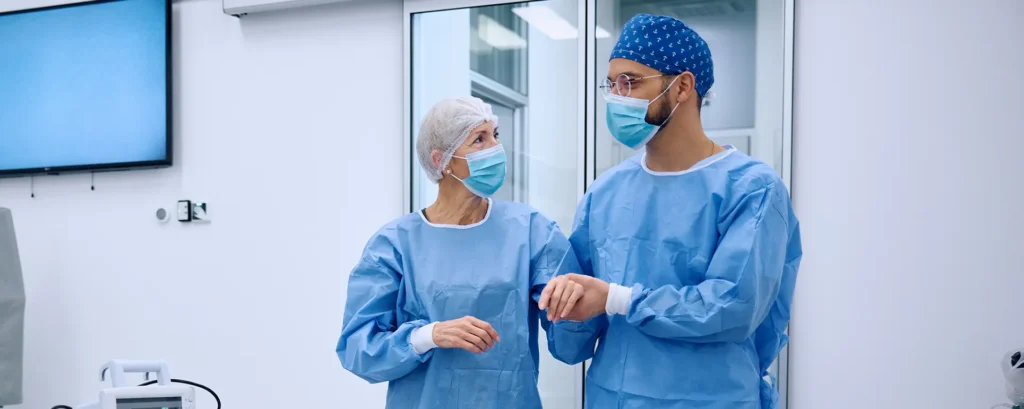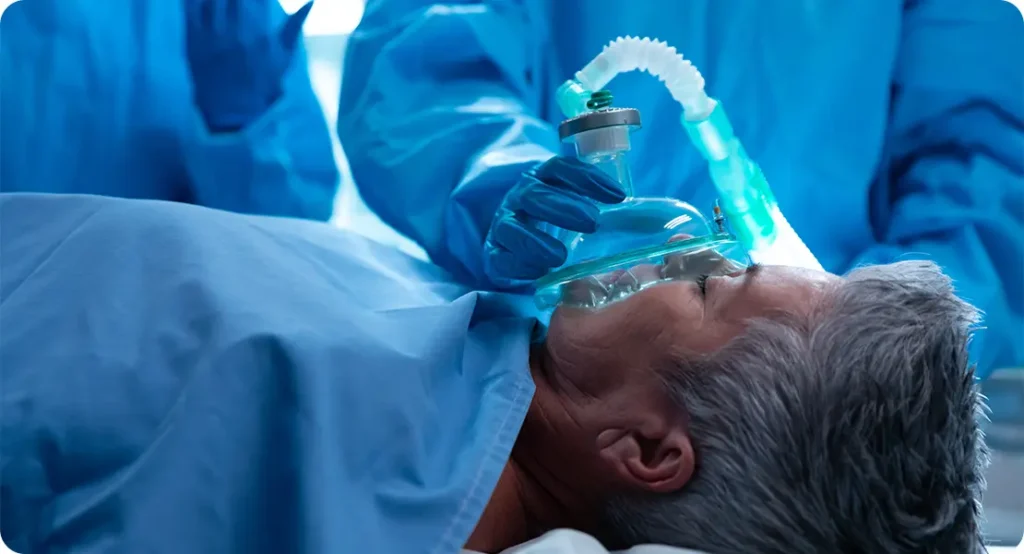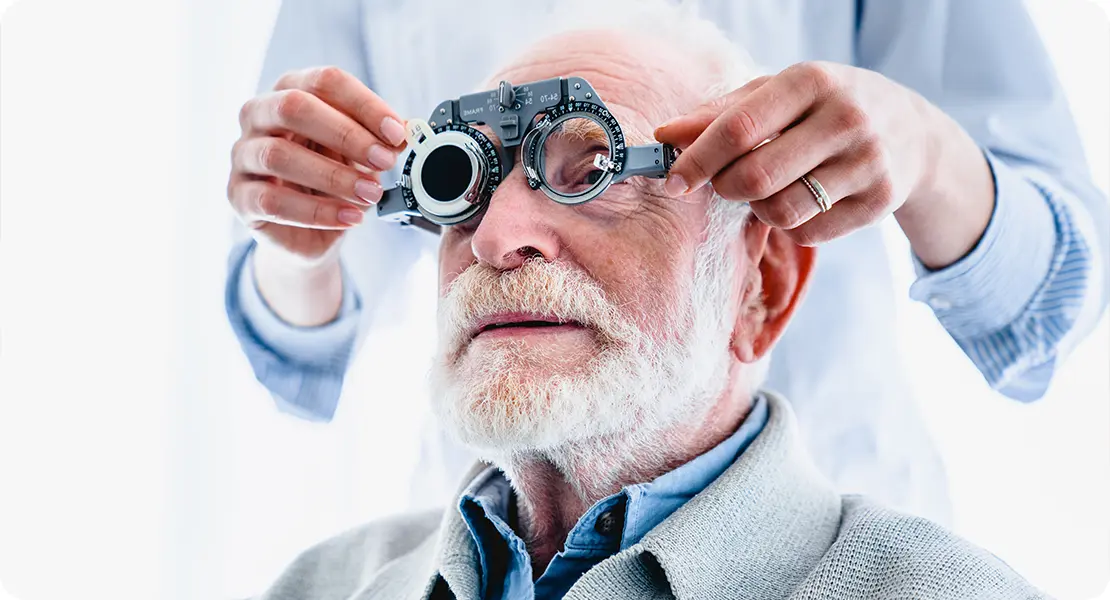If you are in your eighties and facing cataract surgery, you are certainly not alone. Cataracts are almost universal by this stage of life, and for many, they become a major barrier to daily activities. You might be struggling with blurred vision, glare, or difficulty recognising faces, all of which can seriously affect independence. The thought of surgery can feel daunting, particularly if you have other health issues, but it’s important to remember that cataract surgery is one of the safest and most effective operations performed worldwide.
That said, surgery in your eighties does come with a few special considerations. Your overall health, the choice of anaesthesia, recovery expectations, and the potential benefits to your quality of life all deserve a closer look. This article aims to walk you through those factors step by step, so you have a clear understanding of what lies ahead. By the end, you should feel more informed and confident about making a decision that suits your individual circumstances.
Why Cataracts Are So Common in Your 80s
Cataracts are essentially a clouding of the eye’s natural lens, caused by gradual protein changes over time. By the age of 80, the vast majority of people will either have significant cataracts or will already have had surgery. This isn’t a sign of anything “wrong” with you—rather, it’s a natural part of ageing. In fact, cataracts are one of the leading reasons people in their eighties seek medical attention for vision problems.
At this stage, cataracts often develop alongside other age-related eye conditions such as glaucoma, macular degeneration, or diabetic eye disease. These overlapping conditions can complicate the picture, which is why your surgeon will want to carefully examine your eyes and review your medical history before recommending surgery. Even with these added layers, many people in their eighties achieve excellent visual outcomes once cataracts are removed.
Benefits of Cataract Surgery in Your 80s

Some people assume that because they’re older, cataract surgery won’t offer the same benefits it might have earlier in life. This couldn’t be further from the truth. For many people in their eighties, surgery restores independence, allowing them to read, watch television, or move around more confidently without constant fear of falling.
There’s also growing evidence that better vision has wider health benefits. Improved eyesight can reduce the risk of falls, which is particularly important given the increased fragility of bones with age. It can also enhance mental wellbeing by reducing social isolation. Many older adults report feeling “younger” and more engaged with life after their vision improves, highlighting just how powerful the operation can be at this stage.
Risks and Considerations for Older Adults
While cataract surgery remains a low-risk procedure, there are some added factors to consider in your eighties. Ageing can slow down the healing process, meaning recovery might take a little longer than for someone younger. Additionally, if you have conditions such as high blood pressure, diabetes, or heart disease, these can influence both the surgery and the recovery period.
Another factor is eye health itself. The presence of advanced glaucoma or macular degeneration may limit the final level of vision achievable, even after a technically perfect cataract operation. This doesn’t mean surgery won’t help—it usually still makes a noticeable difference—but expectations should be realistic and tailored to your situation.
Anaesthesia Options: What’s Safest in Your 80s?

A common concern for older adults is whether anaesthesia poses greater risks. The reassuring news is that cataract surgery is usually performed under local anaesthetic, often just with numbing drops. This avoids the need for general anaesthesia, which carries more risks in older patients.
For those who may be anxious or have difficulty staying still, light sedation can also be given, keeping you relaxed but still breathing on your own. In very rare cases, general anaesthetic may be considered, but only if absolutely necessary. Your anaesthetist will assess your medical history in detail before deciding which approach is safest for you.
Recovery Expectations in Your 80s
One of the most common questions patients ask is whether recovery will be slower at this age. In truth, many people in their eighties recover at a similar pace to younger patients, noticing clearer vision within a few days. However, some may take longer, particularly if they have other eye conditions or general health issues.
You will usually go home the same day and be advised to take it easy for the first week. Eye drops will be prescribed to prevent infection and reduce inflammation. While most people can resume gentle daily activities quickly, you may be advised to avoid heavy lifting or strenuous exercise for a couple of weeks. Regular follow-up appointments will ensure your recovery is on track.
Lens Options for Patients in Their Eighties
When it comes to choosing an artificial intraocular lens (IOL), age alone does not restrict your options. Monofocal lenses, which correct vision at one distance, remain the most commonly chosen. However, multifocal or extended depth-of-focus lenses may also be suitable for some patients, provided there are no other significant eye diseases.
Your surgeon will discuss what’s realistic given the overall health of your eyes. Sometimes, keeping things simple with a monofocal lens offers the best balance between safety and visual improvement. Ultimately, the choice should reflect both your medical situation and your personal lifestyle needs.
Balancing Cataract Surgery with Other Health Issues
By the time you reach your eighties, it’s common to have several medical conditions requiring daily management. This can make planning surgery slightly more complex. For example, blood-thinning medication may need to be adjusted, or diabetes kept under tight control to reduce infection risk.
Good communication between your GP, any specialists you see, and your cataract surgeon is essential. This joined-up approach ensures all aspects of your health are considered, reducing the chance of complications. If necessary, surgery can often be tailored or adjusted to suit your individual medical situation.
Emotional and Psychological Aspects
It’s natural to feel apprehensive about surgery, especially later in life. Fear of the unknown, concern about anaesthesia, and worry about complications can all weigh heavily. Talking these feelings through with your surgeon or care team can be very reassuring.
It’s also worth noting the positive emotional impact surgery can have. Regaining clear vision can lift mood, reduce anxiety, and give you more confidence in daily life. Many patients describe the experience as “getting their life back,” which is a reminder that cataract surgery addresses not just eyesight, but overall wellbeing.
Support from Family and Carers
In your eighties, you may rely more on family or carers for support before and after surgery. This help can make a real difference, particularly in the first few days of recovery when you’ll need lifts to appointments or assistance with eye drops.
It’s a good idea to plan ahead. Have someone ready to accompany you on the day of surgery, and make sure there’s support in place for the initial recovery period. Even simple tasks like shopping or preparing meals might be easier with a bit of extra help while you adjust to your clearer vision.
Long-Term Outcomes in Your 80s
One of the great advantages of cataract surgery is its durability. Once the cloudy lens is replaced with an artificial lens, cataracts cannot come back. This means that if you have surgery in your eighties, you can expect the benefits to last for the rest of your life.
Some people may develop a condition called posterior capsule opacification (PCO) months or years after surgery, which causes blurred vision again. Fortunately, this can be treated quickly and easily with a simple laser procedure, restoring clarity within minutes.
Frequently Asked Questions
1. Is cataract surgery riskier in your eighties compared to younger patients?
Cataract surgery in your eighties carries slightly higher risks mainly because of coexisting health issues, but the procedure itself remains very safe. Most complications are rare, and the majority of older adults experience excellent outcomes. Careful preoperative assessment is key to minimising risks.
2. Will my age affect how well I can see after surgery?
Age alone doesn’t limit the improvement in vision. The final outcome depends more on the health of your eyes and whether conditions such as macular degeneration or glaucoma are also present. Even if perfect vision isn’t possible, most people notice a significant boost in clarity and brightness.
3. How soon will I be able to see clearly after the operation?
Most patients notice clearer vision within a few days, though it may take up to a few weeks for your eyesight to fully settle. Healing speed can vary, especially if you have other medical conditions. Regular check-ups ensure that recovery is on track.
4. Do I need someone to stay with me after the surgery?
It’s strongly advised to have support at home for at least the first 24 hours. You’ll need someone to accompany you home from hospital and ideally help with eye drops and daily tasks during the first few days. This makes recovery smoother and less stressful.
5. Can I still have premium lens options in my eighties?
Yes, premium lens options such as multifocal lenses can be considered, though suitability depends on your eye health. If you have other eye conditions, simpler lens choices may be more appropriate. Your surgeon will guide you on the safest and most beneficial option.
6. How long will the operation take?
Cataract surgery usually takes 15 to 30 minutes. You’ll spend longer at the clinic because of preparation and recovery time, but the operation itself is very quick. Most people go home the same day and are pleasantly surprised by how straightforward it feels.
7. What if I feel nervous about the surgery?
It’s completely normal to feel anxious, especially at an older age. Many patients find reassurance in talking through the process with their surgeon and learning exactly what to expect. Light sedation can also be given to keep you calm during the procedure.
8. Can cataract surgery reduce my risk of falling?
Yes, improving vision can reduce your risk of falls by making it easier to see obstacles, steps, and uneven ground. This is particularly important in your eighties, as falls can lead to serious complications. Better vision supports safer, more confident mobility.
9. What happens if I have cataracts in both eyes?
Most people have surgery on one eye at a time, with a short gap between procedures to allow healing. Your surgeon will discuss the safest timing for the second operation, which may be a few weeks later. Some clinics also offer same-day bilateral surgery in select cases.
10. Is it ever “too late” to have cataract surgery?
It is rarely too late for surgery, as long as you’re healthy enough to undergo a minor operation. Even in your late eighties or nineties, cataract surgery can offer meaningful improvements in vision and independence. The key is an individualised assessment to weigh benefits against risks.
Final Thoughts
Having cataract surgery in your eighties is not just about sharper eyesight—it’s about reclaiming independence, maintaining safety, and improving your day-to-day quality of life. Clearer vision makes it easier to read, watch television, recognise loved ones, and navigate your surroundings with confidence. Just as importantly, it can reduce the likelihood of falls, which are a major concern in later life. The operation is short, widely available, and remains one of the safest surgical procedures worldwide, even for older adults.
Of course, this stage of life does come with additional factors to consider. Recovery may take a little longer, and coexisting health conditions such as diabetes or heart disease may require more careful planning. But these challenges rarely prevent patients from having surgery altogether. With a tailored approach—supported by thorough preoperative checks and open communication between your surgeon, GP, and family—most people in their eighties can look forward to excellent outcomes.
It’s also important to recognise the emotional impact that restored vision can have. Many patients describe a renewed sense of confidence and independence, feeling more comfortable leaving the house, socialising, or enjoying hobbies they had given up because of poor eyesight. These psychological benefits are just as valuable as the physical improvements, as they contribute to overall wellbeing and a more fulfilling lifestyle.
If you are weighing up whether cataract surgery is right for you, keep in mind that the operation does more than treat the eyes—it supports your confidence, mobility, and independence at a time of life when these things matter most. At the London Cataract Centre, our team is here to guide you through every stage of the journey, from assessment to recovery. With the right preparation and aftercare, cataract surgery can be one of the most positive health decisions you make in your eighties, allowing you to continue living with clarity and dignity.
References
- Yeo, B. S. Y., Keenan, T. D. L., Ong, Y. T., Voon, L. N. L., De Silva, D. A., & Wong, T. Y. (2024). Cataract surgery and cognitive benefits in the older person. American Journal of Ophthalmology. doi:10.1016/j.ajo.2023.12.001. Available at: https://www.sciencedirect.com/science/article/abs/pii/S0161642024001027 (AAO Journal)
- Mencucci, R., Menchini, F., Parodi, M., De Benedetto, U., & Pucci, N. (2023). Cataract and health status in old age: A narrative review. Frontiers in Medicine, 10, Article 1110383. Available at: https://www.frontiersin.org/articles/10.3389/fmed.2023.1110383/full (Frontiers)
- Michalska-Małecka, K., Gołębiewska, J., et al. (2013). Results of cataract surgery in the very elderly population. Journal of Ophthalmology. Available at: https://www.ncbi.nlm.nih.gov/pmc/articles/PMC3741036/ (PMC)
- Rosen, E., Rubowitz, A., & Assia, E. I. (2009). “Visual outcome following cataract extraction in patients aged 90 years and older.” Eye, 23, 1120-1124. Available at: https://doi.org/10.1038/eye.2008.203 (Nature)
- Jefferis, J. M., Evans, J. R., & Lawrenson, J. G. (2015). Does cognitive impairment influence outcomes from cataract surgery? British Journal of Ophthalmology, 99(3), 412–417. Available at: https://bjo.bmj.com/content/99/3/412 (bjo.bmj.com)

